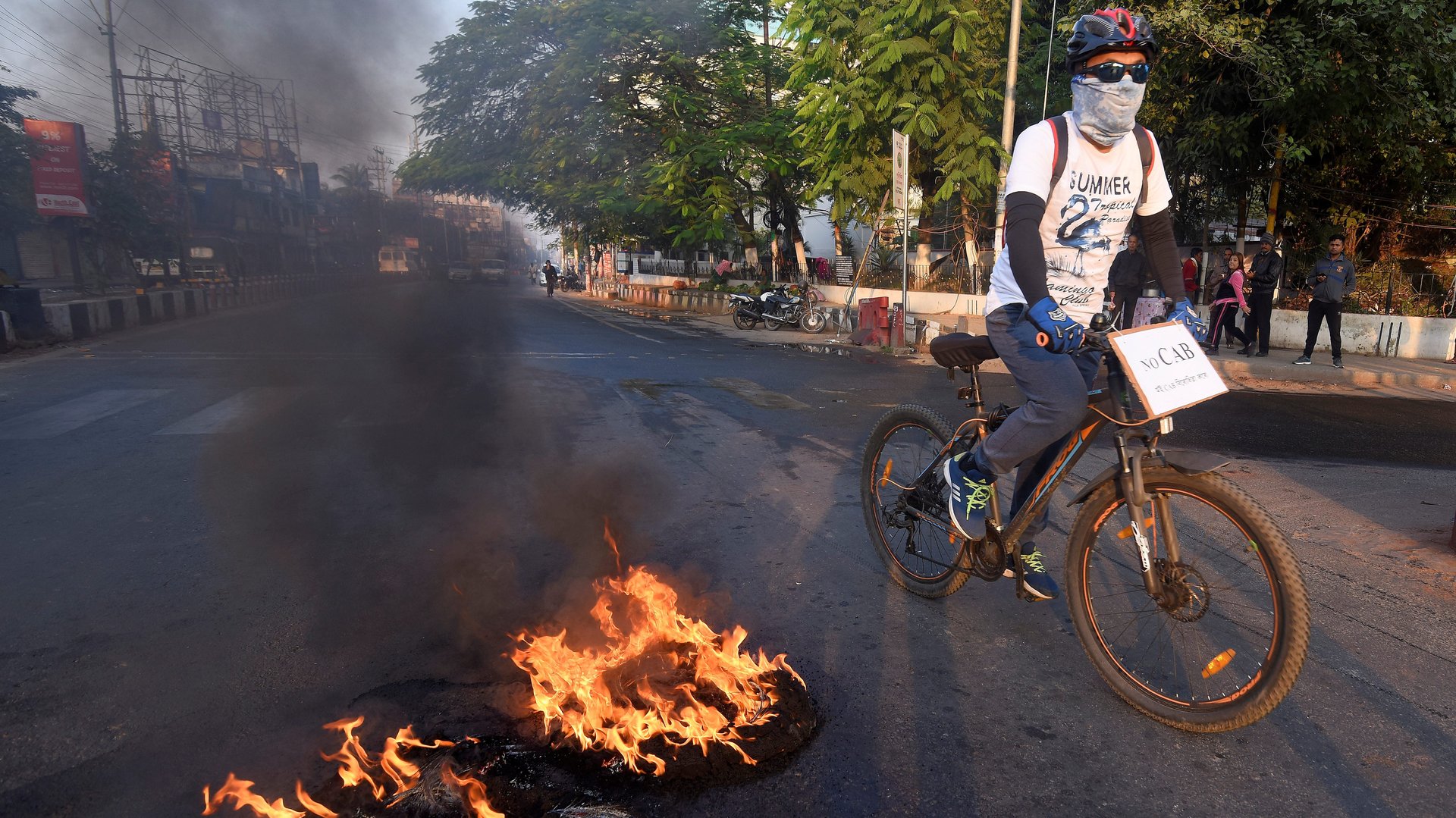Internet shutdowns are becoming second-nature to the world’s largest democracy
The government of India takes a drastic decision. A groundswell of protest erupts and mobs go on a rampage. Shortly, a curfew is imposed. People die as the police open fire. Inevitably, an internet shutdown is announced.


The government of India takes a drastic decision. A groundswell of protest erupts and mobs go on a rampage. Shortly, a curfew is imposed. People die as the police open fire. Inevitably, an internet shutdown is announced.
No, this isn’t only about Kashmir, India’s strife-hit Himalayan state. At least not anymore.
On Dec. 11, India’s northeastern state of Assam witnessed its second internet shutdown of the year. “Owning to protests about the Citizenship Amendment Bill (CAB), there have been widespread protests taking place in Assam,” the Software Freedom Law Centre’s (SFLC) internetshutdowns.in revealed. “Internet has been suspended in the districts from 7pm on 11th December to 7pm on 12th December to curb violence and spread of protests in the state.”
SFLC is a New Delhi–based not-for-profit legal services organisation tracking such instances of shutdowns.
The CAB seeks to make undocumented migrants—Hindus, Sikhs, Buddhists, Jains, Parsis, and Christians—from Afghanistan, Bangladesh, and Pakistan, eligible for Indian citizenship. The decision to leave Muslims off this list has sparked protests in many parts of India.
However, in the northeast, where these protests have been most violent, they have a different texture and root cause. People there are simply against any more refugees, irrespective of their religious or linguistic identity, being accommodated in their states and regions.
Residents of Assam, where many Rohingya Muslims fleeing Myanmar settle, fear that foreigners will burden their resources and distort their culture. After the bill passed in the Lok Sabha (the lower house of parliament) on Dec. 9 and in the Rajya Sabha (upper house) three days later, the protests exploded.
However, many worry that the internet shutdown is not a short-term fix. Already, the ban has continued longer than it was meant to.
According to Twitter users, mobile internet remained off even after the prescribed 7pm. Shamim Zakaria, foreign editor at Chinese publication Global Times, tweeted about it around 10.20pm on Dec. 12:
At 10.30pm on Dec. 12, Al Jazeera journalist Makepeace Sitlhou said broadband will be cut for another couple of days.
Prime minister Narendra Modi, ironically, took to the internet to reassure the very people who didn’t have access to the internet—a basic human right according to the United Nations.
A regional digital news platform said Assam’s internet shutdown has been extended to 7pm on Dec. 14. Television channel CNN reported that it is for “an indefinite period.”
Internet shutdown central
This shutdown comes as little surprise. After all, India is the internet shutdown capital of the world.
This is the first major internet ban in Assam after three of the state’s districts suffered such a shutdown on May 10 following a communal clash.
On its part, the government says it uses internet blackouts to maintain law and order (even though there is little evidence it works). For instance, ahead of the Ram Janmabhoomi-Babri Masjid verdict, the internet was cut off in several parts of the country.
What’s interesting, though, is that India’s seen far fewer shutdowns this year than last year.
Then again, the Kashmir blackout, which began on Aug. 5, has lasted over four months already. For Kashmiris, life sans the internet is the new normal. Assam is headed there now.
The ripple effect, too, is taking hold. Reports of curbs in other northeastern states like Tripura and Arunachal Pradesh are trickling in. A curfew has been imposed in Meghalaya’s capital, Shillong. Mobile internet and text-messaging have been banned n that state for two days.